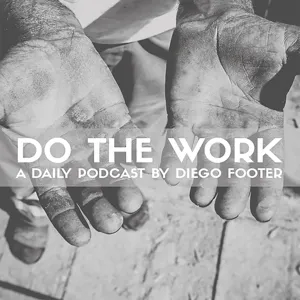Podcast Summary
Children's friendships develop through different stages: Parents can help children build healthy friendships by understanding different stages, teaching empathy, respect, and inclusion, and providing guidance on conflicts and exclusion.
Children's friendships develop through various stages, starting from toddler age where they have a "love the one you're with" mentality, to the elementary school years where they have a "I want it my way" perspective, then moving into the middle school years where friendships become more two-way and rule-bound, and finally, in the teenage years, where they form more mature, close, and accepting friendships. Parents can support their children by understanding these stages and helping them navigate social dynamics. For instance, they can teach their kids about empathy, respect, and inclusion, and provide guidance on handling conflicts and exclusion. Additionally, it's essential to remember that children can have multiple friends as they grow older. Overall, fostering healthy friendships is crucial for children's mental health and well-being, and parents can play a significant role in helping them build and maintain these relationships.
Friendships are essential for children's happiness and development: Help children understand others' perspectives, talk about feelings, value friendships, facilitate one-on-one playdates, and model healthy relationships to support their friendships. Empathetic conversations and perspective-taking exercises can help children develop the ability to understand others' perspectives, deepening their friendships.
As a clinical psychologist and a parent, I have seen firsthand the importance of friendship in children's lives. Friendships are crucial for children's happiness, stress coping, engagement in school, and protection against bullying. Parents can support their children's friendships by helping them understand others' perspectives, talking about feelings, valuing friendships, and facilitating one-on-one playdates. The development of children's friendships is fueled by their growing ability to understand others' perspectives, which adults can help nurture through empathetic conversations and perspective-taking exercises. Additionally, parents can model healthy friendships and prioritize their own relationships to demonstrate the importance of social connections. While social media can offer new ways for children to connect, it's essential to remember that one-on-one interactions still play a vital role in deepening friendships.
Inviting friends over for activity-based get-togethers strengthens friendships: Encouraging activity-based get-togethers and empathetic communication helps build strong friendships for children
While texting and messaging through social media apps are common ways for children to support and supplement their real-life friendships, in-person interactions are still crucial. Inviting a friend over for an activity-based get-together is a powerful way to build friendships and signal openness to friendship. Research shows that the amount of time children spend playing together is a key indicator of how likely they are to become closer friends. As children get older, it's important to approach friendship issues with empathy and ask questions rather than lecturing or criticizing. Having a best friend can be beneficial for children, similar to falling in love, but it's also important for them to have multiple friendships at different levels of closeness. Parents should be careful not to criticize their child in front of peers, as this can hurt their social standing. Instead, guide them through empathetic and thoughtful responses to social situations.
Helping Kids Form Healthy Friendships: Parents can guide children towards positive friendships, reflect on feelings, find new friends, and provide support during losses.
While we as parents can't control our children's friendships, we can help guide them towards forming healthy and positive connections. About one-third to half of kids have best friends, and these friendships can bring happiness and a sense of belonging. However, not all friendships are beneficial, and some can have negative influences. Parents can encourage their children to reflect on how they feel when they're with their friends and whether they bring out the best in them. It takes time to build strong friendships, and parents can help their children find new friends through shared interests and activities. Friendships can end, especially during middle school, and children may feel devastated by the loss. However, with perspective and support from parents, these feelings are usually temporary. Ultimately, parents can provide a safe and nurturing environment where children can learn to navigate the complexities of friendships and build essential social skills.
Emphasizing reconciliation in childhood friendships: Encourage reconciliation, empathize with feelings, provide support, and guide improvement in social skills during childhood friendship conflicts
During childhood friendship conflicts, it's essential to keep the door open for potential reconciliation. While we may want children to negotiate and compromise, research shows that they often forgive and move past conflicts by stepping away and then reconciling. It's crucial to empathize with their feelings and provide support, such as extra family time, while encouraging them to make new friends. It's also normal for children to make mistakes in their social interactions due to underdeveloped empathy and experimentation with social power. If your child is exhibiting mean behavior towards others, it's essential to understand that this is a common part of their development and provide guidance to help them improve their social skills. Remember, children's empathy and social abilities will continue to develop as they gain more life experiences.
Use 'soft criticism' to correct child's behavior: Instead of labeling a child as bad or punishing excessively, use 'soft criticism' - give an excuse, describe the problem, and talk about moving forward to help them learn from mistakes and expand problem-solving skills
When dealing with a child's bad behavior, it's important to avoid labeling them as bad or punishing them excessively. Instead, use a technique called "soft criticism" to help them move forward. This approach involves giving an excuse, describing the problem, and talking about moving forward. Giving an excuse shows the child that you believe they have good intentions, even when they make mistakes. Describing the problem explains the negative outcome of their behavior. And talking about moving forward helps the child think through options for making amends or preventing similar situations in the future. Additionally, encouraging children to consider alternative explanations for others' actions and offering them alternatives to aggressive behavior can help reduce their tendency towards deliberate meanness and expand their problem-solving skills.
Empathize with children in calm moments and help shy kids find their fit: Empathize with children during calm moments to help them think of alternatives and build resilience. For shy kids, acknowledge their tendencies and help them find activities that fit their interests, teaching them specific skills to build confidence and social skills.
As parents, it's essential to empathize with our children in calm moments instead of reacting during heated situations. By doing so, we can help them think of alternative options and get them back on track to being good kids. For shy children, it's crucial not to label them as shy but rather acknowledge their natural tendencies and help them find activities that fit their interests. We should remember that there are many ways to be social, and not everyone needs to be an extrovert. If a shy child is struggling to make friends, we can help them learn specific skills, such as giving friendly greetings, and encourage them to practice these skills until they feel comfortable. It's essential to remember that children who feel anxious or uncomfortable around their peers may communicate their feelings differently, so we should help them role-play greetings and set goals for interacting with others. Ultimately, small steps like smiling and nodding or giving sincere compliments can help shy children build confidence and develop social skills.
Blend in and observe to make connections: Observing emotional tone and blending in with compliments or interested questions helps make connections without drawing unwanted attention and fosters a sense of belonging. Boys and girls have different friendship dynamics, understanding these nuances can help navigate social situations successfully.
Making connections with others, whether as a child on the playground or an adult at a cocktail party, requires sensitivity and attunement to the emotional tone of the group. Instead of interrupting or expressing opposing views, it's more effective to observe and blend in by giving compliments or asking interested questions. This approach helps avoid drawing unwanted attention and fosters a sense of belonging. Additionally, there are differences in friendship dynamics between boys and girls, with girls generally having more intimate friendships and higher expectations, while boys tend to have larger groups and be better at resolving conflicts. Understanding these nuances can help us navigate social situations more successfully.
Friendship and Authenticity: Authenticity and caring for friends are essential for strong relationships. The Doctor Friendtastic podcast explores these themes, offering valuable insights for children and adults alike.
The Doctor Friendtastic podcast, where the host answers children's questions about friendship, provides deep and meaningful insights, showcasing that even simple questions can lead to complex thoughts. A favorite question from an 8-year-old girl, Vera, about changing oneself to make friends, led to a discussion on authenticity, caring for friends, and the intellectual challenge of delivering practical and meaningful answers in a short format. The podcast also addresses various issues, both specific to children and relatable to adults, promoting empathy, reflection, and the importance of controlling one's thoughts, actions, and responses. Despite the COVID pandemic's impact on children's friendships for the past four years, the podcast continues to provide valuable insights and conversations.
Teaching kids to handle conflicts and build stronger friendships: Encourage kids to speak up kindly, forgive, and extend trust in friendships. Let go of past grievances and focus on forgiveness guidelines for stronger, more resilient friendships.
Children today are struggling more with conflict resolution due to less in-person interaction and an overuse of the term "bullying." Dr. Kennedy Moore, a clinical psychologist, emphasizes the importance of teaching kids to speak up kindly, forgive, and extend trust in friendships. She also warns against the negative effects of constant reassurance-seeking, which can actually increase anxiety. Dr. Moore encourages us to let go of past grievances and focus on forgiveness guidelines, such as letting go of small mistakes or forgiving if the person is genuinely sorry. By doing so, we can nurture stronger, more resilient friendships.
Exploring Emotions in Childhood: Importance of Emotional Intelligence in Friendships: Research shows that children who can recognize emotions at a young age have better social and emotional functioning. Emotional intelligence, developed through storytelling, art, and other means, is crucial for building strong friendships and essential social skills.
Engaging children in understanding and expressing emotions through various means, such as storytelling and art, is crucial for their social and emotional development. Research suggests that children who are better at recognizing emotions at a young age, around 5 years old, tend to have better social and emotional functioning by the time they are 8. This foundation of emotional intelligence is essential for building strong and caring relationships, particularly in the context of friendships. The author, in her recent book "Growing Feelings," explores how children can understand, cope with, and communicate their feelings effectively in friendships. This not only fosters emotional intelligence but also helps children navigate the complexities of relationships and build essential social skills. Overall, incorporating emotional exploration into children's lives through various mediums is an essential step in fostering their overall growth and development.





